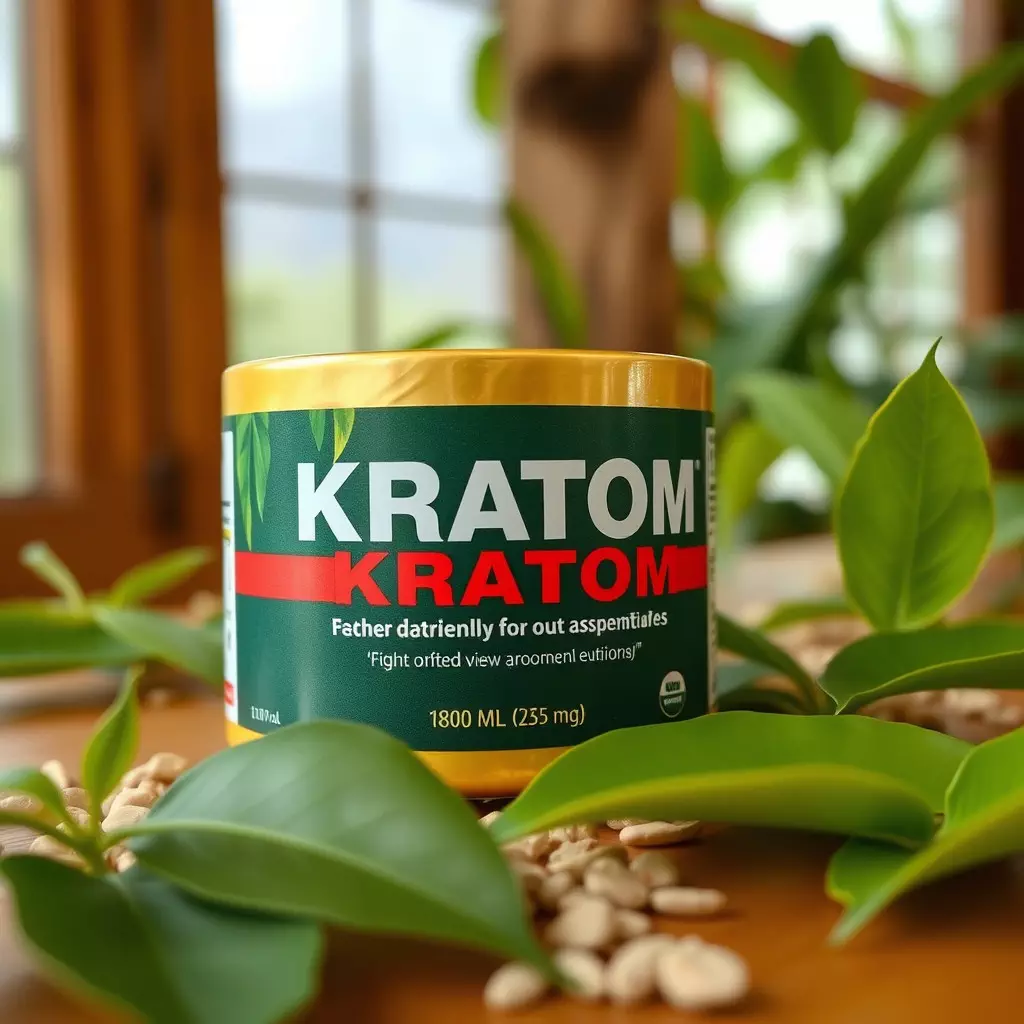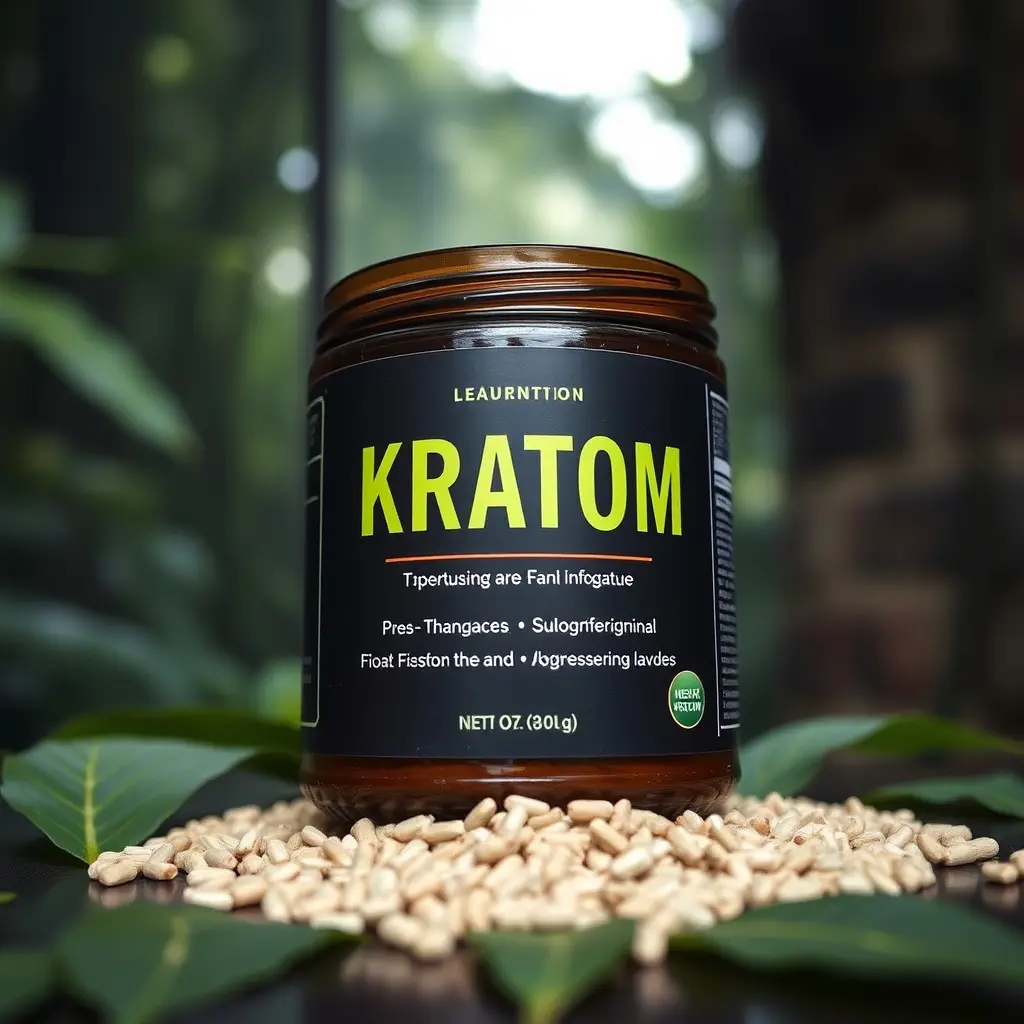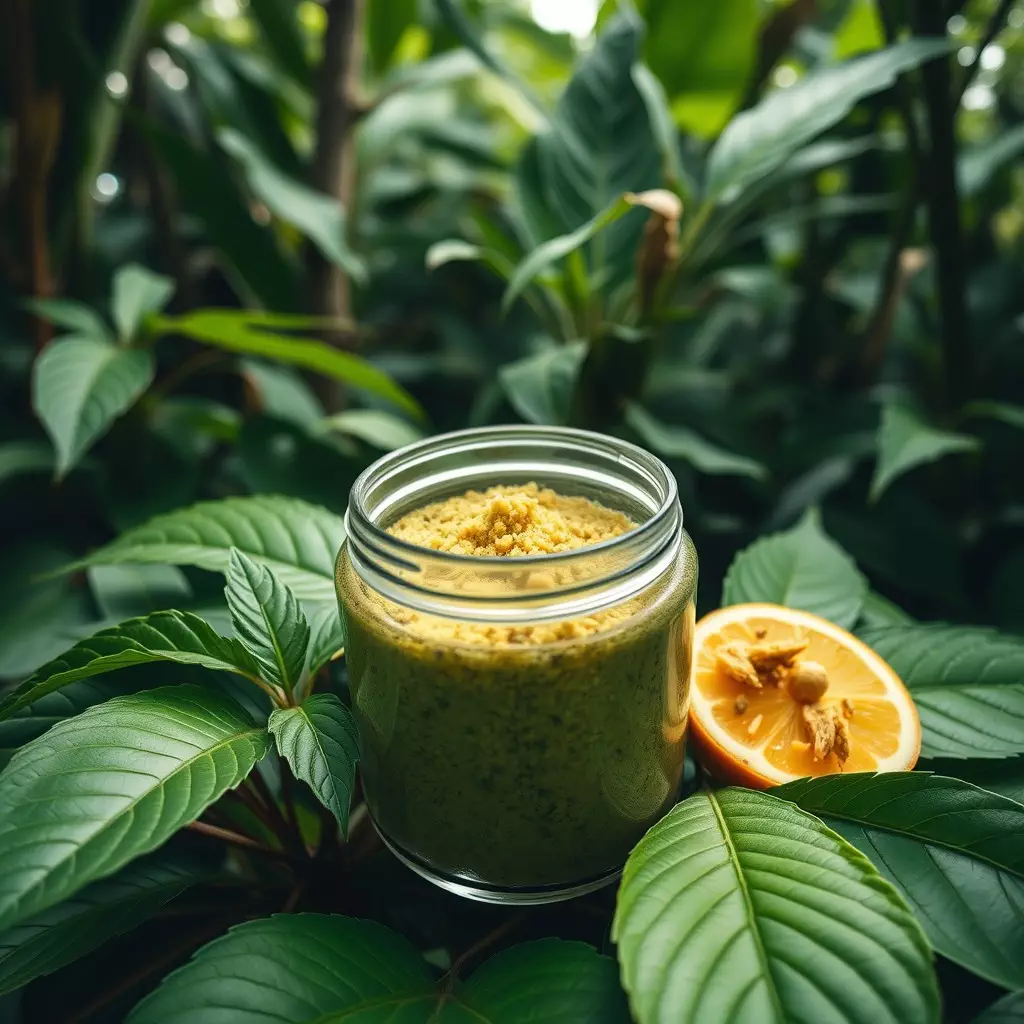Yellow Vein Kratom is a distinct strain of Mitragyna speciosa with a unique alkaloid composition that provides an uplifting and energizing effect. Its potency is influenced by a specific drying process that affects the balance of 7-hydroxymitragynine and mitragynine, which are responsible for its benefits. While some users prefer it as a daytime energy supplement, its effects can be quite potent, necessitating careful vendor selection and standardized testing for quality assurance. The strain's legal status is complex, with varying regulations across different jurisdictions, including within the U.S. military. In the Army, random drug tests are conducted to ensure compliance with a strict policy against illicit substances, and Kratom has been included in this category. This means that soldiers could face disciplinary action if Kratom is detected in their systems. Given the evolving legal landscape and the potential implications for military personnel, it's essential for service members to be aware of the Army's stance on Kratom use. The answer to whether the Army tests for Kratom is affirmative, as it is part of the broader effort to maintain operational readiness and ensure safety and compliance within the armed forces.
Explore the intricate world of Yellow Vein Kratom Powder, a botanical ally with a rich ethnobotanical history. This article delves into its potency, effects, and the nuanced legal landscape surrounding its use, particularly within military contexts such as the Army’s stance on Kratom. Understanding “does army test for kratom” is crucial for those in service and enthusiasts alike. Join us as we unravel the complexities of Yellow Vein Kratom and its significance in various spheres.
- Unraveling the Potency of Yellow Vein Kratom Powder: An In-Depth Analysis
- Exploring the Ethnobotanical Uses and Effects of Yellow Vein Kratom
- The Legal Landscape and Military Implications of Kratom Use: Does the Army Test for Kratom?
Unraveling the Potency of Yellow Vein Kratom Powder: An In-Depth Analysis

Yellow Vein Kratom Powder, derived from the Mitragyna speciosa tree, is a unique strain that has garnered attention for its distinct alkaloid profile and effects. This variant undergoes a specialized drying process that exposes the leaves to a particular environment where sunlight and humidity play pivotal roles, influencing the alkaloid composition and, consequently, the potency of the powder. Unlike its counterparts, Yellow Vein Kratom’s influence on an individual’s experience is often subtle yet profound. The balance of alkaloids such as 7-hydroxymitragynine, mitragynine, and others contributes to the strain’s characteristic effects, which many users report to be uplifting and energizing without the overpowering sedation associated with some strains.
In the realm of Kratom research, the potency of Yellow Vein is a subject of ongoing inquiry. Users frequently discuss the strain’s effects, with some noting its potential as a daytime supplement for energy and focus. The alkaloid content in Yellow Vein Kratom may also offer analgesic properties, making it a candidate for those seeking natural pain relief without the side effects often associated with pharmaceutical options. However, the potency of this strain is not uniform across all sources; it can vary significantly between vendors and batches. This inconsistency underscores the importance of careful consideration when selecting a vendor and emphasizes the need for standardized testing to ensure product quality and safety. The discussion around whether the U.S. Army tests for Kratom use among its personnel reflects broader societal concerns about the substance’s legal status, efficacy, and potential for abuse or dependency. As such, the potency of Yellow Vein Kratom Powder is a multifaceted topic that intersects with both personal user experiences and the regulatory framework governing Kratom’s use in various capacities.
Exploring the Ethnobotanical Uses and Effects of Yellow Vein Kratom

Yellow Vein Kratom, a variant of Mitragyna speciosa, has garnered attention within the ethnobotanical realm for its unique alkaloid profile and effects. Traditionally used in Southeast Asia by locals for energy and mood enhancement, Yellow Vein Kratom is distinct from its red and green counterparts. The leaves undergo a specialized drying process that exposes them to sunlight at a particular stage of maturity, yielding the characteristic yellow veins and hue. This processing method is believed to influence the alkaloid composition, potentially leading to a balanced effect that users describe as both energizing and euphoric without the sedative properties associated with red vein strains. The effects are often reported to be milder in comparison, making it a popular choice for those seeking an alternative to coffee or other stimulants.
The ethnobotanical uses of Yellow Vein Kratom extend beyond traditional practices, as modern consumers explore its potential benefits. Reports suggest that this strain can offer pain relief, mood enhancement, and a gentle stimulation, which might be beneficial for individuals looking for a subtle boost in productivity without the heavy sedation of opioids. However, it’s important to approach such reports with caution and to consider the individual differences in response to Kratom, as well as the legal status of its use in different regions, including any implications for military personnel as per the question “Does the army test for Kratom?” It’s crucial for anyone considering the use of Kratom to be aware that its legal status varies by jurisdiction and that its use can have significant impacts on one’s life, especially within structured environments like the military. Users are encouraged to consult with healthcare professionals and adhere to local laws when exploring the effects and potential benefits of Yellow Vein Kratom or any other supplements and herbs.
The Legal Landscape and Military Implications of Kratom Use: Does the Army Test for Kratom?

The legal status of Kratom is a complex issue that varies by jurisdiction within the United States, with some states and cities banning its sale and possession while others regulate it. This inconsistency reflects ongoing debates about the substance’s safety and efficacy, as well as its potential for abuse. The military, particularly the Army, has a stringent policy on drug use due to the critical nature of maintaining operational readiness and the safety of personnel. Soldiers are subject to frequent random testing to ensure compliance with regulations that prohibit the use of illicit substances, including Kratom if it is deemed such by the military’s classification system. The Army’s tests look for a wide range of substances to maintain discipline and prevent impairment that could affect performance or pose risks in the field. Therefore, soldiers should be aware that Kratom use could fall under the category of prohibited substances and potentially lead to disciplinary action or removal from service. The implications of Kratom’s legal status are significant for military personnel, as any substance that alters mental or physical states can have severe consequences in a military context. It is essential for individuals in the armed forces to stay informed about the evolving legal landscape concerning such substances to navigate this regulatory environment responsibly and maintain their standing within the military.
Yellow Vein Kratom Powder has emerged as a subject of significant interest due to its complex effects and potential uses, which are deeply rooted in ethnobotanical practices. Our exploration has revealed that the potency of this particular strain is both intriguing and multifaceted, influencing users in various ways. Moreover, the legal status and military implications surrounding Kratom use, including questions like “Does the Army test for Kratom?”, underscore the importance of continued research and policy consideration within this realm. As the discussion around Kratom’s role in well-being and its presence in sensitive environments such as the military continues to evolve, it is clear that a nuanced understanding of this botanical substance is crucial for informed decision-making.






